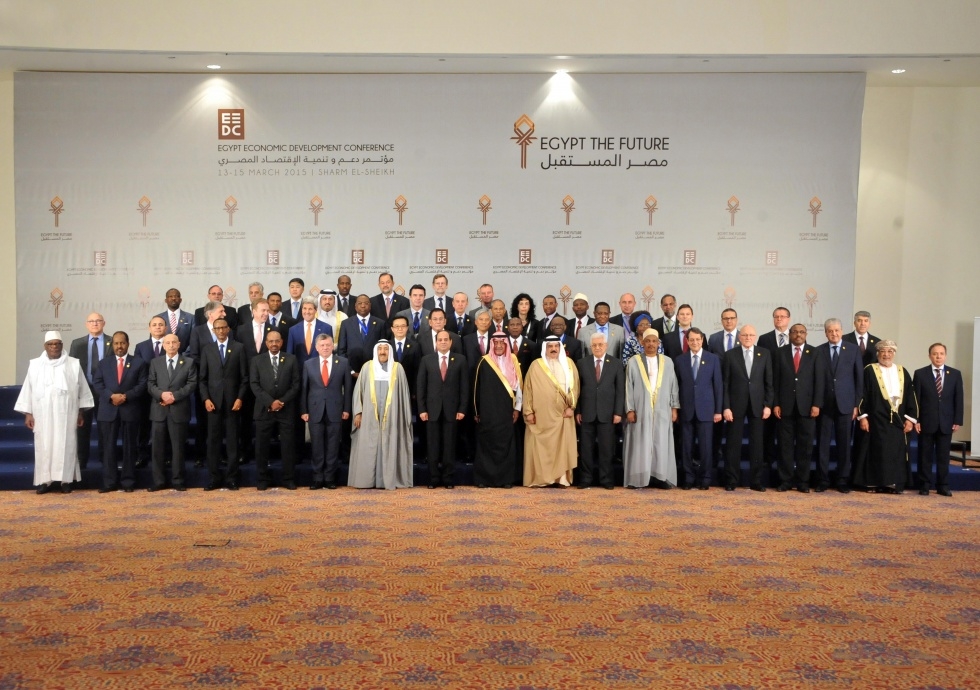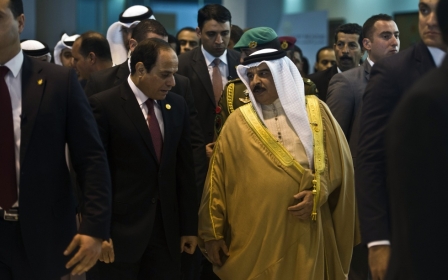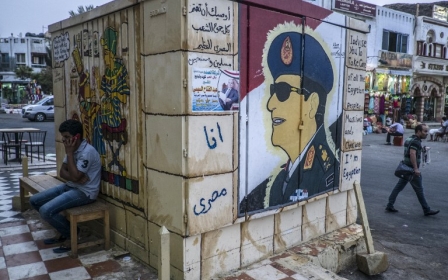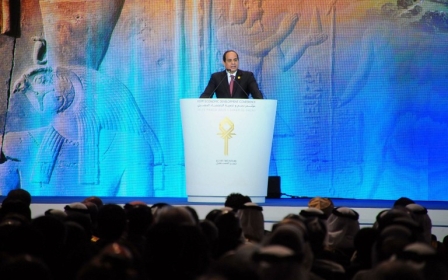Egypt lures $19.3bn in investment pledges on 1st day of Sharm el-Sheikh conference

Egypt has attracted pledges worth $19.3bn in aid and investment during the first day of a major economic conference in the Red Sea town of Sharm el-Sheikh.
A three-day investment conference kicked off in Egypt on Friday in an effort by Cairo to attract foreign investment and shore up an economy battered by four years of political turmoil.
Representatives of more than 100 countries and 25 organisations from around the world are attending the event.
On the first day of the event, Saudi Arabia, Kuwait and the United Arab Emirates each pledged $4bn of investments and aid to Egypt with the Gulf states cumulatively pledging $12bn.
Oman, for its part, pledged $500m to be disbursed over the next five years.
Gulf, Egyptian and foreign businessmen also announced investments worth $6bn in Egypt.
The World Bank also pledged on the first day of the conference to offer $400m to help the poor in Egypt.
Planning Minister Ashraf El-Arabi said the Gulf nations' pledge showed their support was "political, and this political support is very important in this phase".
"I believe that the message is clear that most of the world is supporting Egypt in building the new Egypt," he told AFP.
"The (funding) announcement... makes us very comfortable, and it is a certificate of trust that Egypt will develop and become better than before."
Egypt received a total of $4.7bn worth of foreign investment during the 2013/14 fiscal year but received many more billion last year from wealthy Gulf donors.
Sisi, who ousted Islamist president Mohamed Morsi in 2013 and brutally crushed his supporters, has sought to persuade allies that his country is on the front lines of a war against regional militants.
He has called for building a unified Arab force to fight the Islamic State group that has captured territory in Iraq and Syria, and which commands an affiliate in Egypt.
The Egyptian government expects 4 percent economic growth in 2014/15, up from 2.1 percent the previous fiscal year and has unveiled a host of investment projects at the conference in hopes of luring investment to revive its economy.
In one of the biggest deals expected at the conference, British Petroleum is to sign a $12bn agreement - shared with its Russian partner DEA - to develop Egyptian gas fields.
Plans were also unveiled for a new administrative and business capital east of Cairo that will house five million people and feature a theme park "four times bigger than Disneyland".
Housing Minister Mustafa Kamel Madbuli said the new city would relieve pressure on overcrowded Cairo, with its population of 18 million expected to double in coming decades.
"The idea to build the new city originated from our awareness that Cairo's current population will double in the next 40 years," Madbuli said on Friday in a presentation showcasing the details.
Despite the pledges, however, critics have accused the government of failing to address structural problems and of failing to enact much-needed change.
"The lack of economic vision, beyond making sure high-level investors are comfortable, is a sure-fire way to ensure that the policies that led to the conditions directly preceding the 25 January revolution will be reproduced," Mohamed Elmeshad, a Cairo-based journalist wrote in a column for independent news site Mada Masr.
"One does not need to dig too far back in history to understand that, if anything, investment-cantered economic development may actually be detrimental if it’s not accompanied by actual reforms that take the rest of the economy into account."
New MEE newsletter: Jerusalem Dispatch
Sign up to get the latest insights and analysis on Israel-Palestine, alongside Turkey Unpacked and other MEE newsletters
Middle East Eye delivers independent and unrivalled coverage and analysis of the Middle East, North Africa and beyond. To learn more about republishing this content and the associated fees, please fill out this form. More about MEE can be found here.




